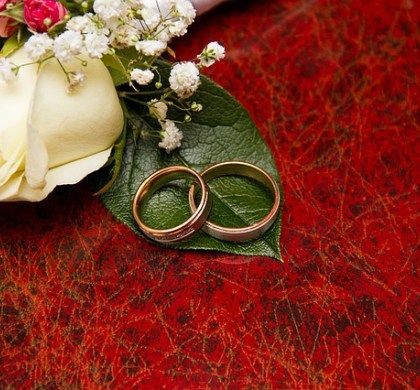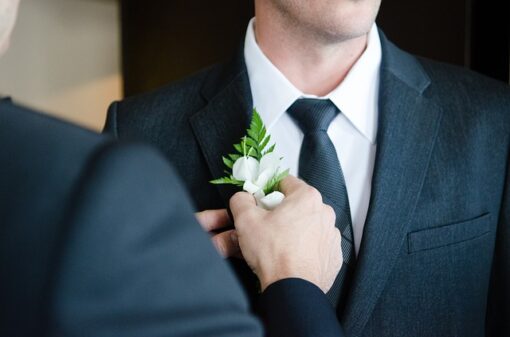What Will He Think of Her?
Tamika’s heart pounded, and sadness overwhelmed her. Part of her wanted to marry him, but she couldn’t.
There was so much he didn’t know about her, and she doubted he would want to marry her after he found out.

Tamika’s heart pounded, and sadness overwhelmed her. Part of her wanted to marry him, but she couldn’t.
There was so much he didn’t know about her, and she doubted he would want to marry her after he found out.
Tamika hung up the phone, feeling as if she had given up a piece of her heart.
A lump developed in her throat, and she wondered if she had made a mistake in telling him no.

There was a part of Tamika that resented this Muslim man who wanted to marry her. Tamika knew her feelings were unjustly critical.
But he’d spoken against college students having boyfriends and girlfriends, and his words opened up wounds that she had hoped to heal.
Tamika had made many mistakes before becoming Muslim.
Caught up in the social life of high school, she hadn’t seen herself drowning.
Parties and clubs were regular scenes for her, and they were always filled with alcohol, marijuana, and good-looking men.
She dressed the part, played the part, and eventually became the part. She partied, drank, and did whatever everyone else did.
Later, when Tamika saw the Muslim man again, she let him know she changed her mind. She would marry him after all.
And finally, as a cruel climax to her degenerate life, she became involved with a young man who was known for crushing hearts.
It was a harsh introduction to the world of men. He would be the first and last boyfriend she had.
Scared by the experience, she turned to the church and vowed to give her life to God.
Now, as a Muslim, she wanted to forget about her past sins.
“What were you afraid of?” he asked.
Tamika grew silent, unsure how to respond. She had pushed her insecurity about her past to the back of her mind, and her healing was in choosing to forget.
It was easier to pretend it had never happened than to risk that her confession would sour what they had found in each other.
But now she felt cornered, and as her mind raced in search of a safe response, she realized honesty was her only option.
She tried to gather her thoughts. “You,” she said finally.
He wrinkled his forehead in confusion. “What do you mean?”
“I wasn’t always Muslim,” she said, letting the implications of her words sink in.
With an empathetic sigh, he shook his head in self-reproach. “I’m no angel, Tamika,” he said, “and I didn’t expect you to be one.”
“Tamika.” He drew in a deep breath and exhaled slowly. He couldn’t look at her. He bit his lower lip and stared distantly in deep thought. “I was always Muslim,” he said finally, confessing his sins as their eyes met, “so I have no excuse.”
“I was afraid you’d judge me for it,” she said.
In the excerpt from my novel A Voice, Tamika is reluctant to agree to marry a Muslim who has proposed to her because she’s afraid that he will judge her for a past sin.
She is no longer a virgin, and she thinks this will be a “deal breaker” for him.
However, to her surprise, she learns that although he himself grew up in a Muslim family, he is not a virgin himself.
It makes no difference to him whether or not Tamika fell into sin in her past life.
In fact, when he asked to marry her, he had never assumed she was a virgin in the first place.
In any case, it is apparent that Tamika’s regret for her past sin is affecting her sense of self-worth as a Muslim, even though her sin occurred before she even accepted Islam.
And Tamika is not alone. Many Muslim women, including those who grew up in Muslim families, are facing a similar struggle.
They fell into sin and lost their virginity. But later they felt bad, gave up the sin, and repented to Allah. Yet they still despair over their wrongs.
Allah (SWT) says,
“Say, O My slaves who have wronged their souls! Despair not of the mercy of Allah.
Verily, Allah forgives all sins.
Truly, He is Oft-Forgiving, Most Merciful.” (Qur’an, 39:53)
However, humans are not so merciful.
It’s a scenario that can make any Muslim woman upset.
A Muslim man lives a life of sin in his youth, and he might even have a girlfriend that even his parents and other Muslims know about.
But they look the other way. He is a boy, after all, they might say.
Then, when it’s time to get married, this man demands to marry only a virgin.

If he finds out that the woman he wants to marry had a single “inappropriate relationship” with a man, he refuses to even consider her for marriage.
Furthermore, even if the woman never committed zina (fornication or adultery), the man will likely refuse to marry her if she is divorced.
His refusal will likely be even more adamant if he learns that she had children from her previous husband.
This hypocritical attitude is sometimes prevalent even among men who are themselves divorced with children.
Though Allah is All-Forgiving of our sins, the harsh reality is that human beings are not so forgiving.
It is an unfortunate fact that humans are overly judgmental of others, especially regarding matters that they have not experienced firsthand.
Don’t judge someone just because they sin differently than you,” a popular saying goes.
But regarding the non-virgin bride, many Muslim men are judgmental of women whose sins mirror their very own sexual transgressions.
And if a potential bride was previously married, the divorce stigma alone carries a stain amongst many Muslims that, socially and culturally, makes divorce as shameful as (if not more shameful than) having fallen into zina.
Not only are these double standards unjust, they are also un-Islamic, as the Qur’an and Sunnah of the Prophet (peace be upon him) do not support these views.
Moreover, they are generally rooted in cultures and mindsets that are based on misogyny (hatred of women).
Often, when a woman is expected to be “pure” before marriage while a man is not, this expectation is rooted in the idea that only men are fully human whereas women are objects that exist only for a man’s pleasure and social image.
In this misogynistic view, there are only two categories of females: those who fulfill a man’s sexual needs before marriage, and those who fulfill a man’s sexual and cultural needs after marriage. The former are viewed as “impure” and the latter as “pure.”
Thus, if a man comes from this cultural mindset, most likely he will judge a woman harshly for any past mistakes.
However, it’s important to remember that while the culture of misogyny is indeed un-Islamic and sinful, it is not sinful for an individual man to prefer a virgin for marriage, even if he is not a virgin himself.
Likewise, a woman who is not a virgin has the right to prefer a virgin man.

However, if men (or women) are living a lifestyle of zina and have not repented, it is sinful for them to marry a chaste spouse, regardless of whether or not the woman or man is a virgin.
Allah (SWT) says,
“The [male] fornicator does not marry except a [female] fornicator or polytheist,
and none marries her [a female fornicator] except a [male] fornicator or a polytheist.
That has been made unlawful to the believers.” (Qur’an, 24:3)
Prophet Muhammad (peace be upon him) said,
“A woman is sought as a wife for her wealth, her beauty, her nobility, or her religiousness, so choose a religious woman and you will prosper” (Muslim). The Prophet also said, “The whole world is a provision, and the best benefit of this world is the righteous woman” (Muslim).
Thus, when looking for solutions, Muslim men must ask themselves at least two questions: “What do I want from life?” and “Who will best help me achieve this?”

Those men who want prosperity and success in this world (and the Hereafter) while enjoying the greatest benefit and pleasure on earth will look at potential wives and say, “But she must be a righteous believer,” and view this as a foundational requirement for marriage.
Yes, other men will say, “But she must be a virgin” or “She must be extremely wealthy, beautiful, or noble” as foundational requirements for marriage.
In that case, Allah will likely give those men what they desire. And in the process, He will protect the truly worthy, righteous women (virgins, non-virgins, and divorced) from falling into the unfortunate situation of having such men as husbands.
SOURCE: https://aboutislam.net/family-life/youth-4-the-future/but-she-must-be-a-virgin/